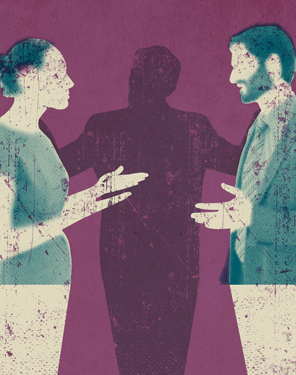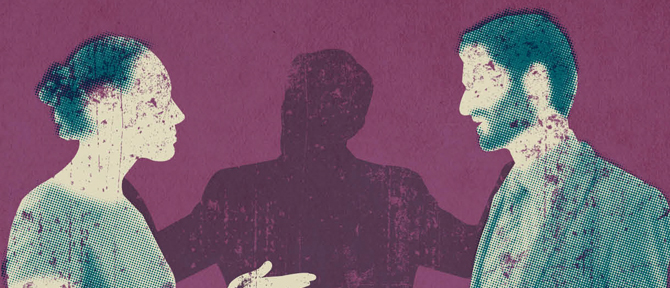The reputational impact of legal proceedings: Legal aspects
Legal proceedings can have an enormous negative impact on an individual’s reputation, which is only exacerbated by the power of new technologies. How can reputation be protected during a judicial proceeding from a legal point of view?
We anticipate that the answer will be determined by the veracity of the information provided. A reputational crisis, generated by a judicial proceeding related to facts that constitute a clear offense, cannot be addressed in the same way a judicial proceeding in which the “facts” are not true might. If the individual has committed an offense, they will have to accept certain side effects that will undoubtedly damage their reputation.
In Spain, honor is a right that is constitutionally guaranteed by Article 18 of the Spanish Constitution. In accordance with the provisions laid down by the Law on Civil Protection about the right to honor, to personal and familiar privacy and to self-image, “the commission of wrongful acts and the expression of value judgments through actions or expressions that may damage the dignity of another individual, undermining his/her reputation or slandering him/her,” is considered illegitimate encroachment.
The concept of honor is not legally bound. Consequently, it is legally vague, though it has clear social connotations. Spanish law establishes that honor can be defined as good reputation, which like fame, consists of the opinion society holds about someone. The common denominator of all attacks or illegitimate interferences in the field of the protection of this right is considered to be the discrediting of someone else’s standing. On many occasions, courts have pointed out that professional reputation is included in the field of the right to honor, closely linked to the concept of dignity. The Spanish Constitutional Court has expressly recognized the right to honor by legal entities.
In the event that certain fundamental rights happen to be of the same level and importance, as occurs between the right to information and freedom of press on one hand, and the right to honor, privacy and self-image on the other, the courts determine which one shall prevail, following a case-by-case assessment and depending on specific circumstances. In light of the Spanish Constitutional Court and the European Court of Human Rights’ jurisprudence, the right to information will only prevail when the information is truthful and of public interest.
The veracity requirement does not demand total accuracy of the informational content, but of the “facts” that have been verified using objective data following deep investigative work
The Spanish Constitutional Court assumes the veracity requirement is fulfilled when, despite the fact the information is objectively false, the media certifies it has respected the duty of due diligence in checking the veracity of the information. Therefore, this veracity requirement does not demand total accuracy of the informational content, but of the “facts” that have been verified using objective data following deep investigative work. In this sense, only the publication of certain facts based on unchecked rumors or mere inventions or insinuations whose veracity has not been verified would be considered explicitly illicit and negligent. This is all without prejudice of the fact that complete accuracy can be controversial and/or may lead to circumstantial mistakes that do not affect the essence of the information. Consequently, the law considers the right to information to prevail if the media has checked it with due diligence, even if the information turns out to be inaccurate or wrong.
Thus, journalists have no objective liability. If the media disseminates untruthful information, thereby causing damage, it will not be held liable as long as its veracity has been checked. But, what happens if the victim has been wrongfully accused, for instance, of sexual abuse, tax evasion or murder? Who assumes the responsibility of such a clear violation of the Spanish constitutional right to honor? Every time I write about this issue, I cannot help but think about cases such as that of Dolores Vázquez, who was wrongly convicted and sentenced by a public jury for the murder of Rocío Wannikhof. Given its terrible mistake, the High Court of Justice of Andalucía had to intervene to repeal the sentence and acquit her of all charges after she spent more than 17 months in prison and was judged and condemned by the media. Vázquez requested economic compensation from the Spanish State, which was recently denied by the Spanish Supreme Court.
Moreover, as the Spanish Constitutional Court has reiterated, freedom of expression is not only the expression of thoughts and ideas, but also encompasses criticism of someone else’s conduct even if it bothers or upsets the individual being criticized as this is what pluralism, tolerance and the spirit of openness require. However, the protection of the right to honor must prevail over freedom of expression when offensive and insulting words and expressions are used with no relation to the ideas or opinions expressed, provided that the Spanish Constitution does not include a right to insult.
 Likewise, according to Spanish legislation, the recording, reproduction or publication of public officials or figures in a public event or publicly accessible location does not constitute an intrusion on their right to self-image. Due to this exception, public figures must tolerate the dissemination of their image without their consent. Although the legal exception refers only to public officials or individuals within notorious professions, some sentences have interpreted this expression in a broad manner and have also included those who are important for their economic relevance or social status. This means that this exception can also include businessmen and senior executives.
Likewise, according to Spanish legislation, the recording, reproduction or publication of public officials or figures in a public event or publicly accessible location does not constitute an intrusion on their right to self-image. Due to this exception, public figures must tolerate the dissemination of their image without their consent. Although the legal exception refers only to public officials or individuals within notorious professions, some sentences have interpreted this expression in a broad manner and have also included those who are important for their economic relevance or social status. This means that this exception can also include businessmen and senior executives.
Consequently, in a reputational crisis generated by a legal proceeding, legal actions are not generally recommended except for in cases where the information is untrue or insulting. In the rest of the cases, the defendant will be subject to judgment from the media and society, and will have to withstand it, regardless of the damage done to their reputation. This is due to the fact that sentences and legal proceedings are not merely reviewed by judicial bodies, but also subject to the judgment of the media and public opinion. Article 24 of the Spanish Constitution establishes the right to a public legal proceeding as a fundamental right.
As Felix Frankfurter, a famous U.S. Supreme Court justice in the 50s’, pointed out, “One of the demands of a democratic society is that the public be aware of what happens inside the courtrooms through the media, so that the abovementioned public can judge if our system of justice is fair and consistent with the law.” The media now encompasses new devices, such as blogs or tweets, which are also under the protection of the right to information.
Therefore, the key lies within the concept of “general interest”: citizens have the right to know not only how public funds are used, but also about the offenses committed by companies and their executive teams.
Many people demand limits to “parallel trials” be enforced to avoid what is known as a “media sentence,” as this adversely affects the right to defense and to a fair trial. As Magistrate of the National High Court Javier Gómez Bermúdez stated, “The root of the problem of these parallel trials is that they place legal proceedings and media information on the same level.” Through parallel trials, the media, often based on speculation alone, will publicly condemn or acquit citizens and, what is worse, in some cases actually influence judicial decisions. And while in legal proceedings there is an established procedure that includes certain guarantees and where all parties are fairly represented, in these parallel trials carried out by the media, not only are there no guarantees, but biased and partial information of the facts is disseminated.
When the information released by the media can cause a violation of the legitimate rights and interests of an individual, they have the right to demand rectification. The right to rectification is limited to the correction of certain information as determined by the affected individual who considers it to be inaccurate and prejudicial. Thus, the only possible recourse for the affected party is in appealing for the publication of the correct version of facts and does not include the possibility of demanding, for example, a compensation for possible damages.
Faced with a reputational crisis entailed by a legal proceeding, it would not be advisable, in general, to take legal actions, with the exception of false or insulting information
The editor must publish the rectification in full within three days, endowing it with an importance similar to that of the previously published information, excluding comments or footnotes and doing so free of charge.
As a guarantee of the right to rectification, there is a brief judicial proceeding that requires the publication of the rectification, if it has not been voluntarily published within the legal deadline or has been denied by the editor. In any case, before initiating legal procedures, the following must be assessed:
a) Delay in meeting the demands: In 2003, an amendment to the Spanish Code of Civil Procedure was made, whereby people who go to court for civil proceedings to raise a matter that constitutes a violation of their constitutional right to honor, intimacy or self-image, must wait an average of more than four years to have their demands satisfied. In addition, the Spanish Organic Law of 1982 allows the adoption of all necessary measures to stop this violation. However, in practice, its adoption is exceptional since it may conflict with the right to information and freedom of expression. Thus, the possibilities for successfully applying for an injunction are rather limited in this case.
b) Media impact of legal proceedings: In many cases, taking legal action in support of the right to honor, privacy and self-image has negative effects, since it can revive interest in a matter that was almost forgotten. Furthermore, excessive prolongation of legal proceedings means that the final verdict may be pronounced many years after legal action was taken, so media will report the information again, giving it renewed importance and publicity.
c) Inadequate compensation: Another factor hindering effective judicial protection is the inadequate compensation imposed on the convicted. This trend changed thanks to the intervention of the Spanish Constitutional Court in the case of Isabel Preysler and Alberto Alcocer. After 10 years of litigation, the Spanish Supreme Court ruled against the publication, forcing it to pay 200 euros to Alberto Alcocer. Fortunately, the Spanish Constitutional Court intervened and granted legal protection to Alberto Alcocer, harshly criticizing the Spanish Supreme Court for reducing the fine established by the Provincial Court of Madrid from 120,000 euros to 200. In Spain, unlike the U.S. or the UK, compensation does not have a punitive nature; its goal is to alleviate the damage caused to the victim.
In short, faced with a reputational crisis generated by a legal proceeding, taking legal action only represents an option if the information is false or insulting. If information is honest, only time will allow the use of certain measures, such as the right to be forgotten, as based on the rules of protection of personal data. The right to be forgotten allows individuals to remove all information that appears online that, despite being true, is no longer considered of public interest. However, as the saying goes… “If you throw enough mud at it, some will stick.”

